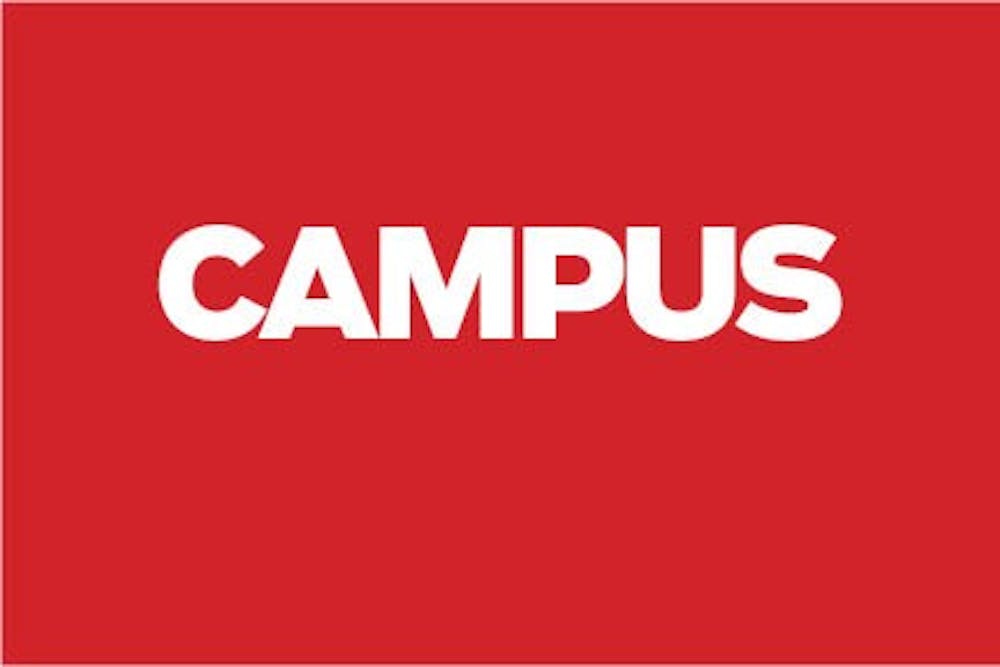Approaching the presidential election, Muslims have become a relevant swing group in deciding the future of the nation.
Middle Eastern relations, Islamophobia and inflammatory political rhetoric have spawned debates: What role does Islam have in America today?
Nader Hashemi, associate professor and director of the Center for Middle East Studies at the University of Denver, sought to answer the question in the Indiana Memorial Union last night.
Hashemi explained how the Western perception of Islam arose through analysis of historical and political events to emphasize the need to combat Islamophobia and overcome religious discrimination.
“Democracy here in the United States is in deep crisis,” Hashemi said. “The deeply polarizing acrimony that this country is experiencing is not going away. It’s in that context the Muslim question emerged.”
Sponsored by the IU Consortium for the Study of Religion, Ethics and Society, Hashemi’s talk “The 2016 U.S. Presidential Election and the Muslim Question” brought light to the history behind how Islam in the U.S. came to be the way it is.
Brian Steensland, director of social science research at IUPUI, said, “This is an inaugural event for what I believe is going to become a seminar for Islam and the public sphere.”
American Muslims are caught between a rock and a hard place today, Hashemi said. They’re worse off now than any time since 9/11.
A new report by the Center for the Study of Hate and Extremism suggested that political rhetoric has played a role in religious hate crimes, Hashemi said.
In 2015, anti-Muslim crimes have risen to the highest since 9/11, and Donald Trump’s rhetoric contributed to this rise, Hashemi said.
“The problem isn’t simply right-wing commentary on Muslims but liberals and members of the Democratic Party have also unconsciously contributed to this growing problem,” Hashemi said.
In response to a Muslim American’s question about Islamophobia during the second debate, Trump’s response that Muslims should “report when they see something going on,” received very little criticism from the mainstream media, Hashemi said.
On the other hand, Hashemi said Hillary Clinton’s answer was troubling in that Muslims were valued in their contribution to national security against the war on terror.
“Muslims are either a threat or they’re valued as allies in the war on terror,” Hashemi said in describing Clinton’s response.
Putting Muslims only in the context of ISIS, terrorism and radicalization paints a negative image of the religious adherents, Hashemi said.
Comedian Bill Maher’s claims that ISIS is a reflection of Islam and Muslims contribute to the Islamophobia, Hashemi said.
“If you look at some of the polls, there are polls that suggest that 45 percent of supports of the Democratic Party would support a ban on Muslims in the United States,” Hashemi said.
More than 70 percent of Muslims are planning to cast their vote for Clinton, Hashemi said, because many have been repelled by Trump’s polarizing rhetoric.
Hashemi sought to explain how the American public’s perception of Islam has created flawed, misleading conclusions of the religion.
Citing examples of the Orlando massacre and the Charlie Hebdo shooting, the roles of Muslims as victims and first-responders in crises have been lost public discourse, Hashemi said.
“Why are fundamental acts of violence immediately associated with Islam and Muslims but not acts of generosity?” Hashemi said.
The conflating and equating of American Muslims with Al-Qaeda, Hashemi said, is a result of misleading rhetoric. Calling out the mass media portrayal of Islam and the Islamophobia industry, Hashemi explains, have promoted Muslim McCarthyism.
Western civilization’s perceptions of the Middle East and Islam are rooted in history, through Ancient Greece, the Enlightenment and colonialism, Hashemi said. He emphasized the importance of individual action in fighting Islamophobia.
“There is one lesson for all of us,” Hashemi said. “Bias, prejudice and religious bigotry against our religious groups can be overcome and has been overcome.”
The U.S. democracy, with its self-correcting procedures, has shown it has the power to combat Islamophobia.
Paraphrasing Martin Luther King Jr., Hashemi said, “The arch of history is long but in the end it bends towards justice.”
But it doesn’t bend toward justice by itself, Hashemi said.
“It bends toward justice because of engagement, sacrifice and public articulation of rational and persuasive arguments,” Hashemi said.




